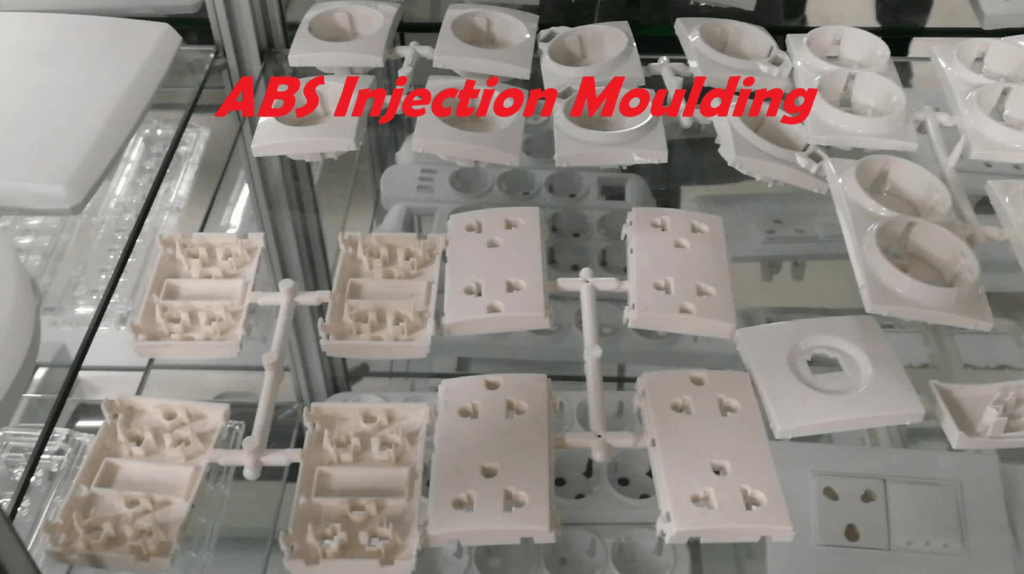Fabricantes de moldes de plástico ABS: ¿Qué se puede moldear con plástico ABS?
¿Qué pueden moldear los fabricantes de moldes de plástico ABS a partir de plástico ABS?
El acrilonitrilo butadieno estireno (ABS) es uno de los tipos más comunes de polímeros termoplásticos que los fabricantes de moldes de plástico ABS utilizan en todo el mundo para numerosas aplicaciones comerciales, domésticas e industriales.
ABS plastic offers a number of benefits, thus making it the first choice for moulding purpose. What more is that the plastic comes with robustness and outstanding quality. Its attributes further enhance its appeal. With ABS, it is possible to create almost any sort of design and shape.
In this blog post, we are going to talk about the different applications of ABS plastic. We will shed light on what the manufacturers can mold using one of the best plastic types. So, without any further delay lets us get started!

ABS Plastic Moulding Manufacturers: Molding ABS
Historia
If you think that ABS is a new form of plastic, you need to revisit the plastic industries’ history. You can trackback the history of ABS to the 1940s. At that time, it was popular among the manufacturers to use styrene-acrylonitrile copolymers.
The material might increase the hardness over styrene, yet it was highly suitable for a number of applications. Even now, this material has several mechanical and physical limitations. These limitations would have rendered the material useless until it led to the creation of butadiene, monomer, and ABS.
ABS came into existence in 1950, and since then it has become a huge success. Molding manufacturers around the world use for a wide range of components and parts. It is the most sought engineering polymers.
There are three main individual components of ABS plastic. The combination of these unique characteristics contributes to the overall effectiveness and efficiency of the product. They enhance the quality of ABS to a great extent.
The three components: Acrylonitrile, Butadiene, and Styrene makes the ABS plastic the best.
Acrilonitrilo
Este componente se encarga de proporcionar resistencia térmica y química.
Butadieno
La fuerza del plástico ABS viene a formar este componente en particular. Lo hace robusto y resistente.
Estireno
Se suma al sentido estético del producto final. El acabado brillante del producto final se debe a la presencia de estireno.
Propiedades del plástico ABS
La propiedad termoplástica del ABS se encuentra entre sus características más definitorias. El termoplástico ABS son polímeros. Estos polímeros tienden a fundirse después de una determinada temperatura. Se vuelven flexibles y suaves. Una vez que les dé tiempo para que se enfríen, volverán a solidificarse.
Thus, it is possible to re-melt and re-mold the thermoplastics as many times as you like, with little to no degradation to its mechanical properties. This is something manufacturers are looking for today. After all, every industry needs to go green in every possible way.
You would not acquire the same result using the thermoset plastic. In this case, when you heat the plastic it burns. Due to its ability to take be reshaped, it is popular among injection moulding manufacturers.
Physical and Mechanical Properties
ABS comes with a number of desirable mechanical as well as physical properties. Most of these properties are superior to several other popular polymer materials. Some of these properties include hardness, toughness, chemical resistance, heat resistance, impact resistance, tensile strength, and abrasion resistance.
It is also possible to improve specific properties of ABS via adjusting its chemical composition. Thus, allowing you to gain access to different grades of material that are suitable for different applications.
Some other exceptional properties of this amazing material include
- Receptive to adhesives
- Receptive to paints
- Lustrous aesthetic qualities
- Excellent machinability
- Rigidez
- Compressive strength
- Electrical insulation
- Dimensional stability
Injection Parameter for ABS Product
Plasticizing Temperature
ABS resin temperature range from 180 to 280°C. The exact temperature is defined by the type of raw materials that the manufacturer uses in the product. For certain application, adjustment is imperative. For instance, in the case of heated resin, the manufacturer would have to use a higher temperature.
Sin embargo, para una resina de uso general, la temperatura debe ser menor. Es importante controlar y retener diferentes temperaturas durante todo el proceso de moldeo por inyección de ABS. Por ejemplo, la temperatura debe estar entre 180 y 230 ° C para la aplicación en barril. Debe oscilar entre 190 y 220 ° C para la boquilla. Sin embargo, en el caso de una resina de alto flujo, la temperatura de la boquilla estaría entre 170 y 180 ° C.
Fabricantes de moldes de plástico ABS - Presión de inyección de la máquina de moldeo
En la mayoría de los casos, los fabricantes utilizan una presión de inyección de entre 60 y 150 MPa para la fusión de resina ABS. En el caso de que el producto moldeado por inyección requiera una pared gruesa y tenga un tamaño de compuerta grande, entonces la presión de inyección puede variar de 70-100 MPa.
Del mismo modo, cuando hay un flujo de fusión más largo, el producto moldeado por inyección es pequeño y el fabricante está utilizando resina resistente al calor, entonces la máquina de moldeo por inyección requiere una presión de 120 a 150 MPa.
También debe cuidar la presión de retención de la máquina de moldeo por inyección . En la mayoría de los casos, la presión de mantenimiento de la máquina está entre 60 y 70 MPa. Esta presión es para productos que tienen poca tensión interna. En la mayoría de los casos, la velocidad de inyección de la masa fundida suele ser de pasos bajos o medios.
NOTA: El tipo de resina tiene un gran impacto en todos los aspectos de la velocidad de moldeo por inyección.
Temperatura del molde
El control de la temperatura del molde ABS también es imperativo para garantizar piezas o componentes precisos y de alta calidad. En la mayoría de los casos, el cuerpo de carbón que forma un molde de ABS se controla dentro de un rango de temperatura de 40 a 80 ° C.
NOTE: When you use high mold temperature, it would lead to smaller internal stress of the product, better melt filling quality, and good product appearance.
Although, high-temperature molds are effective, but there needs to be an upper bound. If the ABS plastic molding manufacturers increase the mold temperature beyond the upper limit it would result in shrinkage of the product.
In addition, this product would easily be deformed once you demold it. Furthermore, the manufacturing cycle time of the product increases, thus resulting in additional energy and money. Therefore, it is imperative to ensure that the die moulding temperature for an ABS product is within range.
In general, the manufacturer keeps the temperature between 40 to 60°C.
ABS Plastic Moulding Manufacturers – Applications/ Industries
Due to the machinability of relatively low cost and exceptional properties, ABS is the perfect material for a number of applications. The use of ABS is so widespread, that you would be interacting with one, without knowing about it.
Everything from cell phone housings, radio, toolboxes, furniture, power tools, kitchen appliances, and luggage, as well as the reproduction of prototypes, is possible due to this powerful material. Its receptiveness to paints, dimensional stability, and adhesives make it an excellent choice.
The use of ABS is not limited to domestic and home products. On the contrary, several industries use it every day. Below, we have listed some of these industries.
Food Industry
FDA approves of ABS for food contact application including food packaging and appliances. Therefore, making it the prime choice of people in the food industry as well as the packaging world.
Aerospace
ABS parts are found both on the exterior as well as the interior of the areophane. They are part of different types of aircraft. A common example of these components includes cockpit visors, signage, seating parts, cargo containers, and the luggage bins.
Automotriz
The automotive industry is incorporating ABS into their cars to make them lightweight. At the same time, ABS is effective for improving fuel efficiency. Some of the common ABS automotive components include body parts, wheel covers, dashboards, and trimmings.

Pharmaceutical and Medical
Dado que los grados médicos de ABS tienen una biocompatibilidad mejorada, son excelentes para dispositivos de administración de medicamentos, así como para alimentos. También encontrará en ABS un material importante para la fabricación de carcasas y estuches de numerosos dispositivos médicos.
Juguetes
El ABS es extremadamente común para la creación de juguetes para niños, ya que tiene una naturaleza duradera y no es tóxico. Por ejemplo, se utiliza para crear muñecos de acción, Legos o triciclos, entre otros.
Además, los plásticos ABS también son comunes para la impresión 3D .



